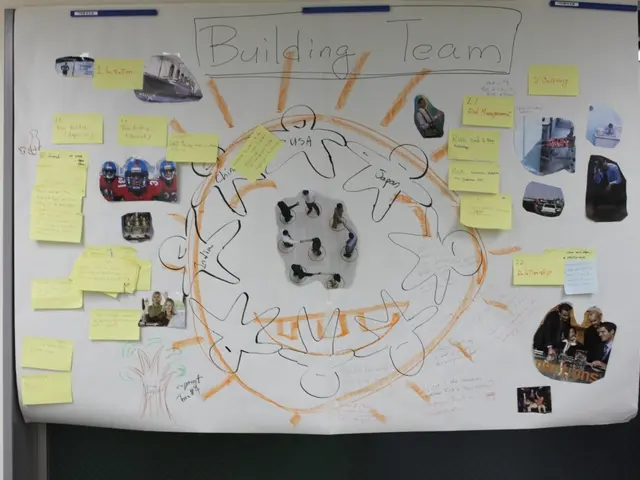Co-Incarnation: Nurturing Mothers in Prisons - Embracing Proximity over Separation at Zweibrücken Prison
- *
Housing mothers alongside rather than apart - Proposed prison scheme entails co-located detention centers for mothers - Custodial Institutions Earn Approval for Mother-Child Mingling - Maternal Detention Facilities Get the Go-Ahead for Co-habitation
Imagine a future where mothers and their young children find refuge in the heart of a prison, at the Zweibrücken Prison (JVA). "It's all about the child's welfare," asserted JVA director Jürgen Buchholz to the German Press Association.
The JVA intends to construct a new facility in 2027, equipped with five mother-child cells. This is a groundbreaking change from the current conditions.
The proposed facility caters to children up to 12 months old. "Two or three years old? They're bursting to explore the playground or play with pals," Buchholz explained. A closed prison environment can't provide these opportunities.
The accommodation will prioritize the child's welfare. The youth welfare office will oversee approval for shared accommodations. "The sentence term must be manageable," said Buchholz. The child should leave the prison by its first birthday.
"For years, we've been offering services for mothers with children, but no shared living arrangements," Buchholz shared. They're working on a follow-up offer beyond the 12-month mark, but it's too tentative for public discussion as of now.
The upcoming initiative welcomes mothers from both Rhineland-Palatinate and Saarland. "Linked prison systems with Saarland, remember?" Buchholz recalled. The new building will also host a social therapy section, currently in planning.
- child's welfare
- prison
- mothers
- focus
- Zweibrücken
- Buchholz
- accommodation
- separation
- German Press Association
- mother
- children
- Saarland
As the idea of allowing mothers to cohabitate with their young children within prison walls unfolds, it sparks both advantages and drawbacks:
Advantages
- Emotional Wellbeing: Keeping mothers and their children together maintains emotional bonds, essential for the child's growth. This can help minimize stress and anxiety for both parties.
- Mental Health Boost: The presence of children can offer mothers a sense of purpose and responsibility, potentially enhancing their mental health and reducing the risk of depression.
- Promotes Social Interaction: Children experience stability from their mother's presence, easing their adaptation to the demanding prison environment.
- Long-term Rehabilitation: Encouraging family bonding creates a more supportive atmosphere for rehabilitation and integration into society post-release.
Limitations
- Financial and Logistical Challenges: Implementing mother-child programs requires substantial investment in infrastructure, personnel, and resources to ensure a secure yet nurturing environment.
- Security and Safety Concerns: Balancing the need for family cohesion with security and safety for all inmates, staff, and children is essential.
- Childcare and Education: Providing adequate care and education to children living within prisons can be challenging and resource-intensive.
- Legal and Child Welfare Issues: Potential legal and ethical disputes between the mother's and child's needs must be addressed to ensure a suitable prison environment for children.
To successfully implement these programs, prisons need to thoughtfully address these obstacles through careful planning, budget allocation, and collaboration with social services and child welfare organizations.
- In the proposal for a new facility at Zweibrücken Prison, the focus is on the child's welfare, ensuring emotional and mental health benefits for both the mother and child through cohabitation.
- Director Jürgen Buchholz, in discussing the prison's community policy, highlighted the need for close family ties, which could potentially minimize stress and anxiety for both parties.
- The new accommodation, planned to open in 2027, aims to foster social interaction and long-term rehabilitation by facilitating mother-child bonding, a crucial aspect of the health-and-wellness and family-health spheres.







